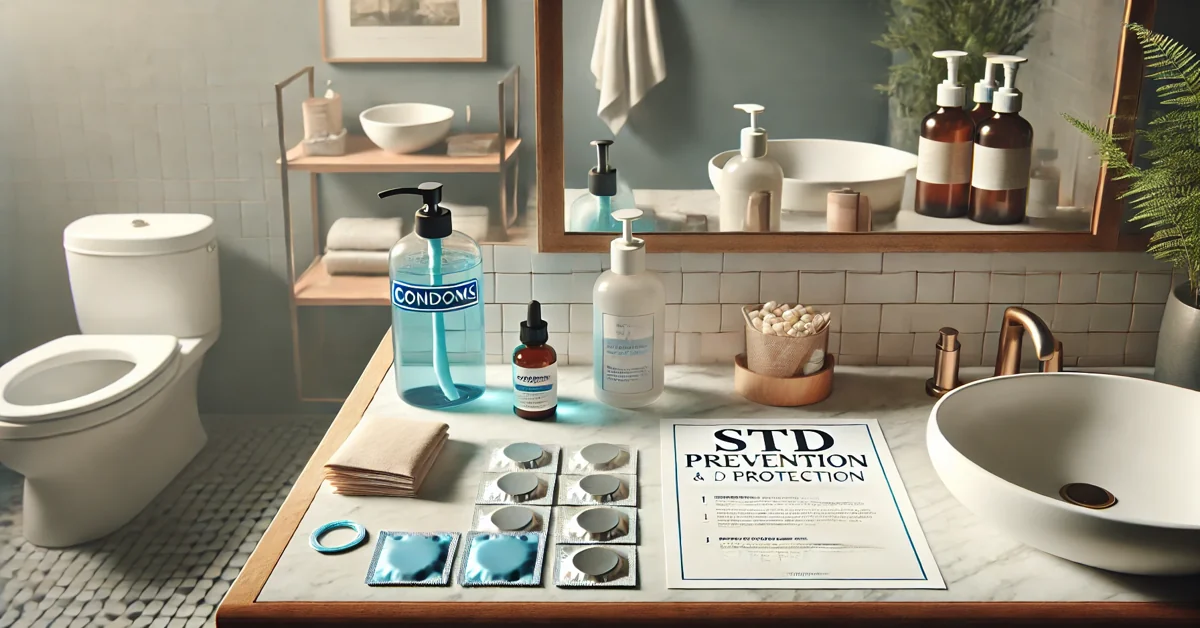As you begin to get older and engage in sexual intercourse with another person, you must stay safe while having fun. Sexually transmitted diseases (STDs) and sexually transmitted infections (STIs) have increased in their prevalence in the modern day. In fact, one in five people in the United States on any given day during a year was found to have an STD or STI per the CDC. While some of these diseases and infections are curable, others are not. Similarly, some are relatively harmless whereas others can have incredibly severe consequences. Learn how to protect yourself from STDs or STIs so that you can rest easy.
Practice Safe Sex
The first step in keeping yourself safe while engaging in sexual intercourse is to practice safe sex. First and foremost, ensure you are using a contraceptive when you are having sex to protect against unwanted pregnancies. In addition to this, though, to reduce the spread of STDs and STIs you should always use a condom to create a barrier. Ensure that a condom is stored properly according to its instructions and that its expiration date has not passed as this will bolster the efficacy.
If you are going to engage in oral sex, consider using a dental dam that can protect against the spread of STDs or STIs to your mouth. Remember that at the end of the day, abstinence is truly the only surefire way to prevent STDs. If you are going through a riskier period of your life, taking temporary abstinence from sexual activity can be a great way to bolster your health.
Regular Get Yourself Tested
The next best way to prevent STDs or STIs and get them treated is to get yourself tested regularly. With Priority STD Testing you can schedule an appointment at over 4,000 lab locations from the comfort of your home and simply walk in for your test on the day of your appointment. For those with stable partners it is recommended to get tested on an annual basis. Still, if you have had multiple partners or seem to notice potential symptoms then it is recommended to get tested every 3-6 months on average. Take note that you will have total confidentiality with your testing lab during testing and treatment.
Have Open Communication with Partners
Another excellent way to protect yourself against STDs and STIs is to simply have open communication with any partners you may have. There are often stigmas that come with talking about these diseases or infections which stop people from bringing it up but this communication is crucial for staying safe and building trust with a partner. Listen carefully to any concerns your partner may have and be sure to adhere to whatever makes them feel the most comfortable. In the event your partner currently has an STD or STI, it’s best to go through a period of abstinence until it is fully treated. If it is untreatable or incurable, research the risks of contracting it before engaging in sexual intercourse with that person.
Additional Considerations to Remember
When protecting yourself against STDs or STIs there are a variety of considerations to remember. For certain diseases or infections, some vaccines can prevent contracting the ailment. HPV and Hepatitis B are two examples. If you haven’t happened to receive either vaccine, it’s best to speak with your doctor as soon as possible.
Beyond safe sex and preventative vaccines, ensure that whatever relationships you enter are healthy ones with open communications. You need to build supportive connections with your partners and not be afraid of open communication. Remember that if someone tells you they have an STD or STI that doesn’t mean they are “dirty” or any other stigma you may have heard regarding these ailments. When in doubt, speak with a healthcare provider who can provide you with mental support or counseling if you find out a partner or yourself tests positive for an STD or STI.
Practice safe sex in your life
While it’s perfectly fine to live your life any way you see fit regarding your position on sexual intercourse, it’s important to be as safe as possible if you do engage in the act. Take all necessary precautions to reduce the spread of diseases or infections and get yourself tested regularly to ensure you are clear. Remember that not everyone gets symptoms of STDs or STIs which is why asking your doctor for a test regularly, even if you are with a stable partner, should be on your list of to-do’s.









